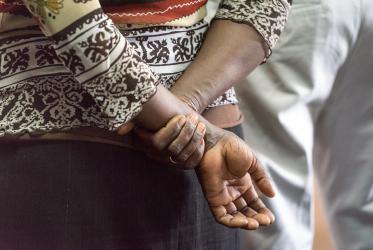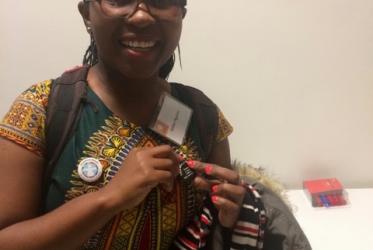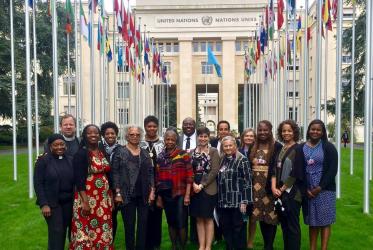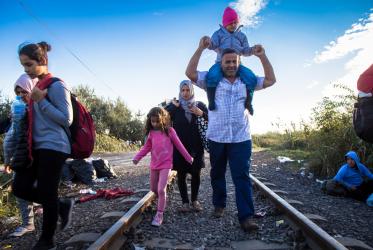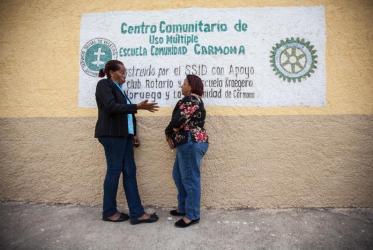Displaying 1 - 20 of 21
WCC calls for peace in Colombia
09 February 2018
WCC appoints new representative to the UN
27 October 2017
“The work of truth-telling has to happen”
28 September 2017
WCC appeals for support, for all to stand #WithRefugees
31 August 2016
Symposium focuses on religion, violence, extremism
04 February 2016
Church leaders address statelessness in Dominican Republic
03 February 2015
WCC calls for protection of church leaders in Colombia
30 January 2015
Human rights defender Charles Harper honoured by Argentinian government
19 September 2014
Use of armed drones condemned by WCC
13 February 2014


